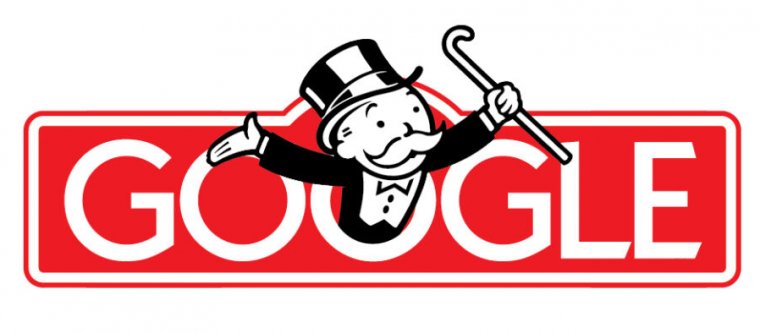
Enlarge / Let's see, you landed on my "Google Ads" space, and with three houses... that will be $1,400. (credit: Ron Amadeo / Hasbro)
The US Justice Department is gearing up for a possible antitrust lawsuit against Google's ad business, and a new report from The Wall Street Journal outlines a "concession" Google is proposing in response to the investigation. Google might split up some of its ad business and move it to Google's parent company, Alphabet.
The meat of the WSJ report says: "As part of one offer, Google has proposed splitting parts of its business that auctions and places ads on websites and apps into a separate company under the Alphabet umbrella, some of the people said. That entity could potentially be valued at tens of billions of dollars, depending on what assets it contained."
The goal of "splitting up" the ad division isn't necessarily to make the whole ad division separate from Google but to weaken Google's end-to-end ownership of the ad business. Currently the company serves as broker and auctioneer for advertisements—which is what the DOJ has a problem with. Google makes tools that cover both the "buy" and "sell" sides of the web advertising world, which naturally pushes advertisers using Google's buy tools toward publishers selling ad space with Google's auctioning system. Most online systems work similarly. Amazon has an interface where Amazon product sellers sell to Amazon product buyers, Uber has a system for drivers and riders, but the rules are different when you're a monopoly, as opposed to just "very big."
Read 4 remaining paragraphs | Comments

Enlarge / Let's see, you landed on my "Google Ads" space, and with three houses... that will be $1,400. (credit: Ron Amadeo / Hasbro)
The US Justice Department is gearing up for a possible antitrust lawsuit against Google's ad business, and a new report from The Wall Street Journal outlines a "concession" Google is proposing in response to the investigation. Google might split up some of its ad business and move it to Google's parent company, Alphabet.
The meat of the WSJ report says: "As part of one offer, Google has proposed splitting parts of its business that auctions and places ads on websites and apps into a separate company under the Alphabet umbrella, some of the people said. That entity could potentially be valued at tens of billions of dollars, depending on what assets it contained."
The goal of "splitting up" the ad division isn't necessarily to make the whole ad division separate from Google but to weaken Google's end-to-end ownership of the ad business. Currently the company serves as broker and auctioneer for advertisements—which is what the DOJ has a problem with. Google makes tools that cover both the "buy" and "sell" sides of the web advertising world, which naturally pushes advertisers using Google's buy tools toward publishers selling ad space with Google's auctioning system. Most online systems work similarly. Amazon has an interface where Amazon product sellers sell to Amazon product buyers, Uber has a system for drivers and riders, but the rules are different when you're a monopoly, as opposed to just "very big."
Read 4 remaining paragraphs | Comments
July 09, 2022 at 01:02AM

Post a Comment